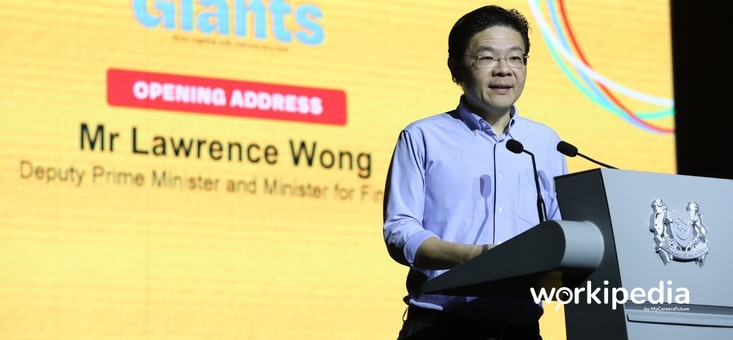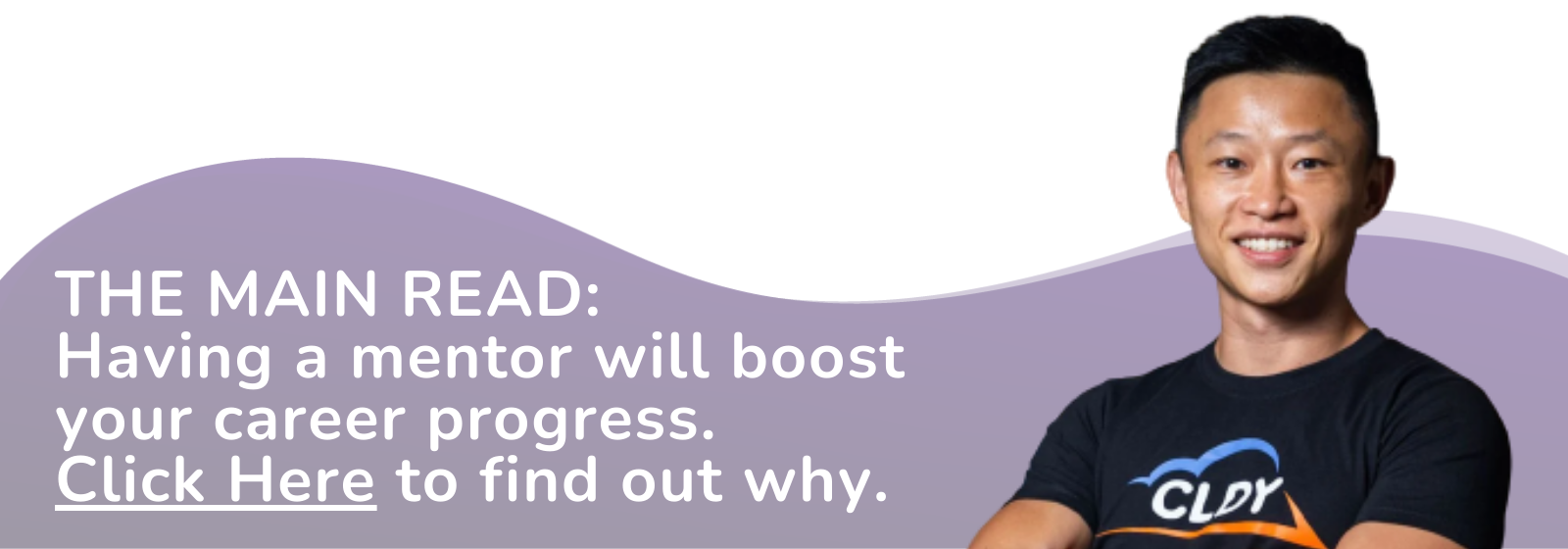Being in Asia, Singapore’s work culture can feel quite top-down and hierarchical. As such, workplace professional relationships between bosses and subordinates tend to feel more transactional and less mentorship-focused.
Trevor Yu, an associate professor in organisational behaviour in the leadership, management and organisation division at Nanyang Business School, shared: “To an extent, our workplaces mirror what we have in our general society and the prevailing culture that we live in.
“Singapore society tends to be accepting of unequal relationships between people where power is centralised, and control is based on rules and clearly defined relationships. The hierarchical workplace thus fits better into this prevailing context.”
But if you’re seeking a working relationship based on mentorship, this relationship dynamic needs to shift. After all, good mentoring is about rapport and respect between both the mentor and mentee.
What is mentoring, and what does it take to be a mentor?
Mr Paul Heng, managing director of NeXT Career Consulting Group, shared his point of view with the Straits Times: “Support or mentoring usually covers three main topics: job tasks; learning about the company culture and how things work, or do not work; and facilitating introductions and connections to stakeholders of the new team member.”
Paul also adds that the relationship between mentor and mentee plays a large role in the success of mentorship: “Wanting to be a mentor and the willingness to be a mentee does not guarantee effective mentoring will happen.
“Both parties have to see benefits from the arrangements, and both must be willing to allocate quality time, as well as put in the effort to make the mentoring work.”
Dr David Leong, managing director of human resources advisory firm PeopleWorldwide Consulting, added: “Mentors should be approachable and available to answer questions and provide guidance.”
“They should also be open to receiving feedback from the mentee and adjusting their approach as necessary.”
Mentoring helps women in our workforce
Mentoring is also a key step in helping women looking to return to the workforce and close gender gaps in business leadership.
Speaking at the Committee of Supply 2023, Minister of State for the Ministry of Manpower Gan Siow Huang shared that the Singapore Business Federation launched the Singapore Women Entrepreneurs Network in 2021, to nurture and support female talent.
In the same year, the Singapore Council of Women’s Organisations introduced a Mentoring Programme for aspiring women directors, to help them achieve their professional development goals. NTUC U Women and Family has further expanded its Women Supporting Women Mentorship Programme across the island, where women in the community are mentored by women leaders and union leaders.
NTUC U Women and Family, NTUC LearningHub and e2i also started a career returner programme called “Women Returning to Work Initiative”, which includes training and job matching opportunities. Concurrently, WSG collaborates with other community partners to support women returning to work, including Yayasan Mendaki and Daughters of Tomorrow.
She revealed: “These collective efforts have contributed to the growth in the employment rate for women aged 25 to 64, from 73% in 2020 to 76% in 2022, in spite of the pandemic. We will continue working with partners to provide women with the support they need and we encourage employers to continue doing their part.”
Young and inexperienced at work? Even DPM Wong needed help and mentoring
In 2022, Mentoring SG was launched to connect younger workers and Singaporeans with mentors through an online platform and reach out to corporate organisations for mentoring opportunities.
At the launch of the independent office in December 2022, Deputy Prime Minister (DPM) and Minister for Finance Lawrence Wong shared that the set-up would pool expertise and resources and scale up mentoring opportunities at a national level.
He also revealed his own career journey and how mentorship played a part in where he is today.
“Growing up, I had no idea what I wanted to be, and I had no idea of the career I wanted to pursue. In fact, I had not started out wanting a life-long career in the public service.
“I was fortunate enough to get a scholarship to go overseas, which I took up only because I wanted to see the world. Without the scholarship, I would not have been able to do it myself.
“When I returned from my studies, I thought about joining the Ministry of Foreign Affairs (MFA) to continue my explorations around the world, but I was rejected. Then, I started out as an economist in the Ministry of Trade and Industry (MTI), thinking that maybe I should leave after a while to join the private sector. Fortunately, I had very good bosses.
“They engaged me; they were my happenstance, as Hafiz would put it. We did not have a structured, guided mentoring programme, but they were good bosses.
“And, they were there to talk to me, gave me opportunities to do more at work and encouraged me to see the purpose in public service work.
“So I had the privilege of working closely with some of them, including Mr Lim Siong Guan at the Ministry of Finance and Mr Khaw Boon Wan, initially at the MTI and then at the Ministry of Health, all of whom I learned much from.
“And it was through these exposures, and from continuing in the job over time, that I subsequently found my calling in the public sector, and I stayed on for more than 25 years now – 15 years in the civil service and ten years in politics.
“Like me, I am sure many others who are undergoing similar experiences in their “gathering years” can relate to this.
“Because most of us do not start off with a long-term plan for our careers.”
“We do not say, I have a 10 to 15-year plan, and this is what I want to do. If you truly have that in your mind, good for you, but I think the vast majority of people do not start off like that.
“Instead, we mostly take it one step at a time, and hopefully, along the way, we get to choose a career aligned with our purpose, values and passion.
“And also a career that stretches us and pushes us a little bit out of our comfort zones so that we continue to develop and grow.
“No doubt, as we take these steps one by one, there will be challenges along the way.
“There will be moments when we stumble. But it is from these setbacks that we grow, and mentors play a pivotal role in guiding us through these setbacks and enabling us to develop and grow.”
He concluded: “Ultimately, what we hope to create in Singapore is to make this a land of opportunity for all, a place with diverse and promising pathways for every Singaporean to maximise their potential regardless of their background.
“Mentoring is one of these resources, embodying this spirit of fellowship and mutual support that is so crucial in taking Singapore forward.
“Everyone has something to contribute, and we all have a responsibility to support one another for the greater good.
“So I seek your support for our Mentoring SG movement!”
(Main image credit: MCI)















